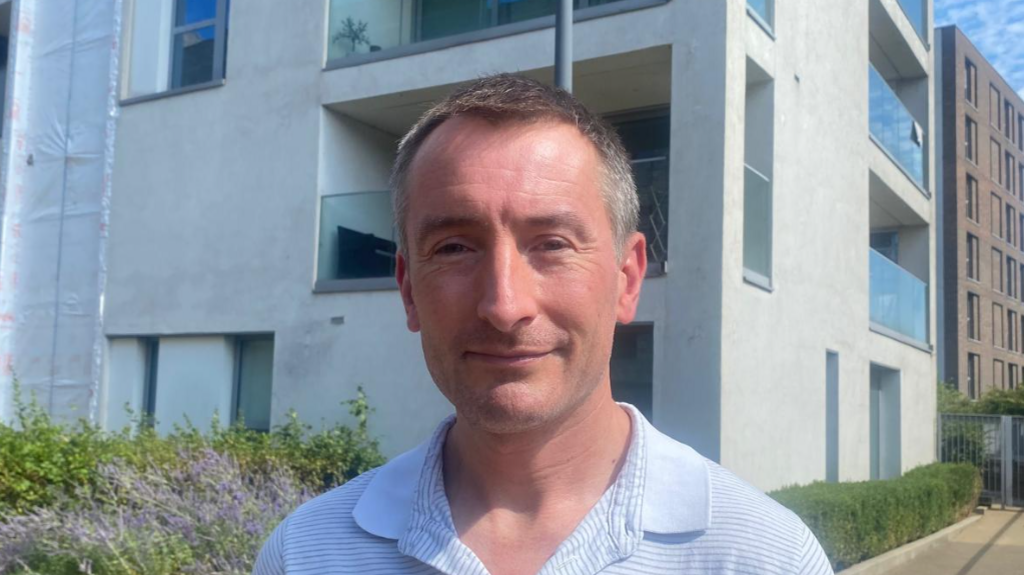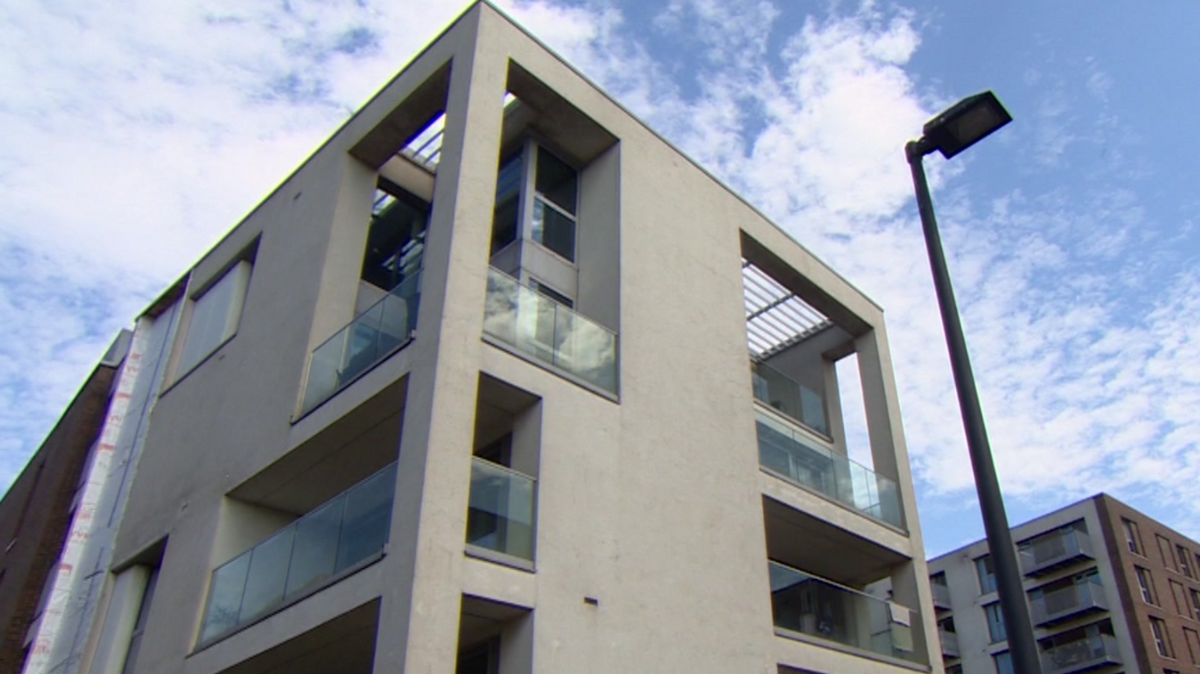'Are we the next Grenfell with our flammable flats?'

Philip Chapman says he is frustrated that the cladding on his flat has not been removed despite complaining for the past three years
- Published
Overlooking the Thames just a stone's throw away from London City Airport sits Waterside Heights, a complex of 750 modern flats across seven blocks.
When Philip Chapman bought a two-bed flat in the complex in 2014 he thought he was buying his dream home.
But 10 years on, his living situation has become "a nightmare".
He says that some of the blocks have flammable cladding, material that would not be allowed to be used if a property was being built today.
There are also missing fire breaks across the development and wooden balconies stacked on top of each other.
“If one building catches fire then the material acts like a giant chimney and everything else will go up in flames," the 43-year-old tells the BBC.
Replacing cladding needs urgent action, adviser says
- Published27 August 2024
'We somehow got out' of London tower inferno
- Published27 August 2024
Following the fire in Dagenham over the weekend, Mr Chapman says he is now even more concerned for his safety and the safety of the other 700 residents in the complex.
"There are hundreds of families being left in unsafe buildings and if we're not careful, in a few months time we may be the next Dagenham fire or even the next Grenfell," he says.
Mr Chapman also tells the BBC that many residents are so worried about a potential fire that they sleep with bottles of water and towels next to the bed so they have something to put around their faces if they had to escape.
Other families in the complex have had to teach their children what to do if the fire alarm goes off in the night and they have to evacuate.
'Stuck in limbo'
The other problem that residents face due to the unsafe cladding is that they cannot sell their flats.
"We're stuck in limbo," Mr Chapman says.
"The safety inspections have given us the lowest rating possible so no bank will issue a mortgage because the work that needs doing is going to cost several millions and until it's clear who is doing the work, the bank won't take the risk."
In 2021 Mr Chapman's flat was issued with a fire safety rating of B2, the worst possible rating.
The rating "means there isn’t an adequate standard of fire safety and remedial work/interim measures are required", according to the government's website.

All seven blocks in the complex have flammable cladding on the exterior
Mr Chapman says the property developers, Barratt Homes, and the insurers Aviva done nothing to make the flats safer and are full of "empty promises".
"They have no interest in making the building safe and helping us get on with our lives," the digital marketing manager says.
"It's basically a part-time job trying to contact them - you never get a reply, you have to follow up all the time and when they do respond they just repeat the same thing."
A spokesperson for Barratt says it is "fully committed to undertaking all necessary remedial works" but that it was "unable to start works until an agreement with the freeholder on insurance matters were concluded".
In a statement, Aviva says it is Barratt Homes that is responsible for the works.
"We have been in extensive discussions with Barratt about the work needed to fix these problems and to ensure that residents are properly protected," the statement adds.
Listen to the best of BBC Radio London on Sounds and follow BBC London on Facebook, external, X, external and Instagram, external. Send your story ideas to hello.bbclondon@bbc.co.uk, external
Get in touch
Are you affected by issues covered in this story? Share your experiences.